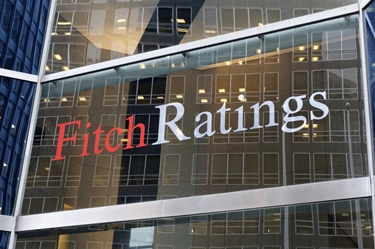Fitch Ratings has affirmed Turkmenistan’s Long-Term Foreign-Currency (LTFC) Issuer Default Rating (IDR) at ‘B+’ with a Positive Outlook. Here is a summary of the report:
KEY RATING DRIVERS
Fundamental Rating Strengths and Weaknesses: The rating is supported by Turkmenistan’s extremely strong sovereign balance sheet, with the highest sovereign net foreign assets (SNFA)/GDP and lowest public debt in the ‘B’ peer group, underpinned by the world’s fourth-largest gas reserves.
- Sovereign net foreign assets rose 6pp in 2023 to 51.5% of GDP, compared with the ‘B’ median of minus 22.5%. Fitch estimates the current account surplus narrowed 2pp in 2023 to 5.9% of GDP, and forecasts it to shrink further to 1.9% in 2025 on lower energy prices and strong imports boosted by capex, slowing SNFA growth.
- The volume of gas exports (which account for two-thirds of total exports) fell 2.3% in 2023, and Fitch projects gas production will be broadly flat in 2024-2025 due to constrained pipeline infrastructure capacity.
- The state budget surplus narrowed 0.4pp in 2023 to 0.6% of GDP, as tax revenue fell 2.2%, including a 21% drop in natural resource tax receipts (gas exports are made under long-term contracts that frequently link revenue to the oil price). Expenditure rose 1.9%, and capex from the state budget picked up to 0.7% of GDP. Fitch forecasts the fiscal surplus to narrow to 0.1% of GDP in 2024 and move into a deficit of 0.5% in 2025, reflecting lower energy prices (including Fitch’s forecast fall in the oil price to average USD70/barrel in 2025) and a moderate increase in capex.
- Public debt fell to 4.3% of GDP at end-2023 from 10% at end-2021, and Fitch projects a further reduction to 3.5% at end-2025. The Turkmenistan Stabilization Fund, entirely local currency-denominated, rose TMT5.5 billion in 2023, to TMT32 billion, of which TMT17.2 billion (6.1% of GDP) was the fiscal reserves held at the central bank.
- Inflation fell to 1.4% at end-2023, from 3.0% at end-2022 (and 21.1% at end-2021), with non-food inflation of just 0.1%, due to base effects, easing supply-chain disruptions, greater domestic food production, a fall in international prices, and ongoing control of administered prices.
Factors that could, individually or collectively, lead to positive rating action/upgrade:
-Public/External Finances: Confidence that the strengthening of the public and external balance sheet will be sustained, for example, reflecting persistently high prices of key hydrocarbon exports or greater export capacity.
-Macro: An improvement in the credibility and consistency of economic policy that reduces macroeconomic distortions and enhances the capacity of the economy to absorb shocks.
-Structural: An improvement in governance standards, the availability and reliability of key official economic data, and/or the business environment, likely underpinned by policies to open the economy.
The full report is available here: https://www.fitchratings.com/research/sovereigns/fitch-affirms-turkmenistan-at-b-outlook-positive-02-02-2024 ///nCa, 5 February 2023
